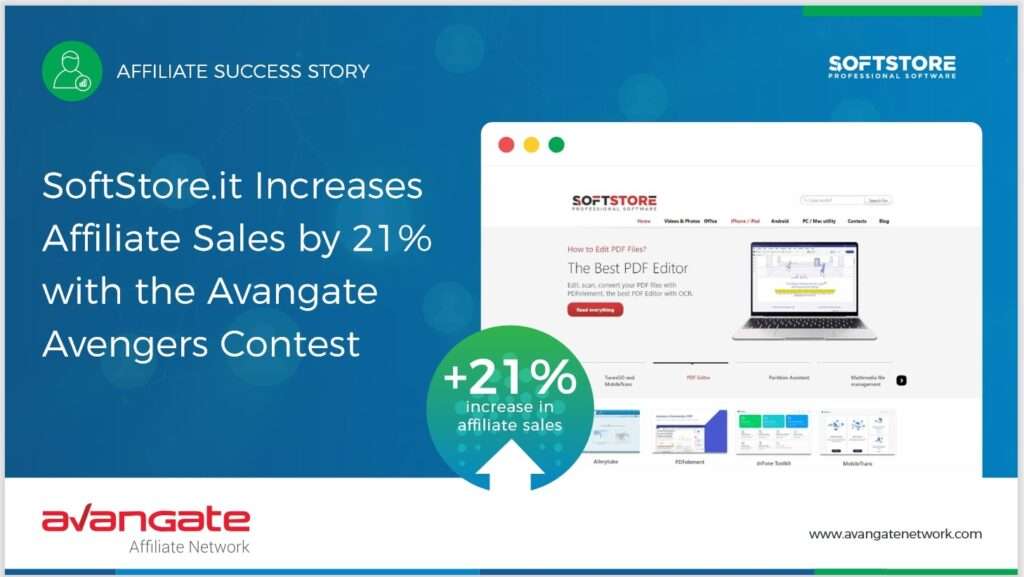Welcome to the world of affiliate marketing, where creative businesspeople and digital whizzes collaborate to forge profitable alliances, spur online sales, and make money.
Affiliate marketing has emerged as a dominant force in the fast-paced digital marketplace of today, bringing together companies and influencers with bloggers, content providers, and bloggers to promote goods and services.
You’ve come to the correct place if you’ve ever wondered how your favorite influencers are paid for endorsing goods or how online merchants seem to have a legion of devoted brand supporters.
So buckle up for a thrilling adventure into the vibrant world of affiliate marketing, and get ready to buckle up!
Quick Links
What is Affiliate Marketing
Affiliate marketing is a type of performance-based marketing where affiliates promote the goods or services of a company or retailer in exchange for a commission for each sale, lead or other action that results from their special referral link.
The affiliate receives a commission based on a predetermined percentage or fixed amount whenever a user clicks on the referral link provided by the affiliate, purchases something, signs up for anything, or does any other desired activity.
It is a vibrant and constantly changing sector that has emerged as a preferred revenue generation strategy for online businesses of all sizes in a variety of sectors, including e-commerce, fashion, travel, technology, and more.
Importance of Affiliate Marketing
I can attest to the tremendous significance of affiliate marketing in the current digital landscape as an affiliate marketing coach and trainer. Here are some details and instances that elucidate the significance of affiliate marketing:
1)- Revenue Generation: For both affiliates and brands, affiliate marketing offers a fruitful income creation approach. When a successful sale, lead, or other action is created through an affiliate’s referral link, they can receive commissions, and companies can benefit from the affiliates’ extensive network and influence to increase sales and income.
Example: An affiliate relationship between a fashion blogger and an online apparel company is an example. Through their blog and social media, they advertise the retailer’s merchandise in exchange for a commission for each purchase made using their referral link.
2)- Cost-Effective Marketing: By utilizing affiliate marketing, firms can take advantage of the marketing efforts of third parties who are paying to advertise the brands’ goods or services.
Compared to conventional forms of advertising, where firms would need to invest in commercials, campaigns, or other marketing initiatives, this makes it a more affordable marketing strategy.
Example: A startup company with a small marketing budget can work with affiliates to market their goods or services while reducing marketing costs and increasing revenues.
3)- Increased Brand Exposure: Affiliates can introduce brands to new markets and consumers, broadening their appeal and raising brand recognition.
Affiliates can give brands access to new prospective customers because they frequently have their own devoted followers and specialty audiences.
Example: A tech blogger with a sizable audience might collaborate as an affiliate with a software provider to promote the latter’s products to their readership and introduce the latter to a larger tech-savvy market.
4)- Improved SEO and Traffic: Through their marketing initiatives, affiliates can direct traffic to a brand’s website, potentially improving the brand’s organic traffic and search engine rankings.
A brand’s SEO efforts can be aided by backlinks from affiliates’ websites.
Example: A travel blogger may advertise an affiliate hotel booking website by directing traffic to the site through their travel articles and reviews, which may boost the hotel booking website’s search engine ranks and website traffic.
5)- Diverse Marketing Channels: By allowing affiliates to advertise products or services on a variety of online platforms, including blogs, social media, email lists, YouTube, podcasts, and more, affiliate marketing enables firms to diversify their marketing channels.
Brands may communicate with potential customers through a variety of touchpoints.
Example: A fashion blogger for Instagram, a tech YouTuber for video marketing, and a lifestyle blogger for content marketing are three examples of affiliates that an e-commerce firm may work with to broaden its marketing strategies.
6)- Performance-Based Marketing: Affiliate marketing is a sort of performance-based marketing in which affiliates are compensated according to their real outcomes, such as sales or leads.
As a result, it is a low-risk marketing strategy for brands because they only compensate affiliates for outcomes that can be seen.
Example: To advertise a brand’s products, an affiliate marketer might execute a Facebook ad campaign. To ensure a return on investment, the brand only pays the affiliate if the campaign results in actual sales or leads (ROI).
7)- Flexibility and Freedom: Freelance affiliates have the freedom to work according to their own schedules, promote the brands and goods they want, and do it from any location.
They are given the flexibility to follow their passions and establish a work-life balance that works for them as a result.
Example: A freelance affiliate marketer who chooses to work part-time, promote goods that are in line with their hobbies, and enjoy the freedom to travel.
8)- Possibilities for Skill Development and Learning: Affiliate marketers provide a wealth of opportunities for skill development and learning.
They continually improve their marketing abilities, discover new goods and sectors, and follow the most recent developments in digital marketing, all of which can advance their entire professional development.
Example: A marketer specializing in paid advertising may become knowledgeable in Google Ads, Facebook Ads, and analytics, and an affiliate marketer specializing in content marketing may learn SEO, copywriting, and social media management. These priceless talents are transportable and might lead to more chances in the field of digital marketing.
9)- Win-Win Collaboration: Affiliate marketing encourages affiliates and brands to work together in a way that benefits both parties.
Affiliates receive compensation for their work, and companies gain from more sales and more consumer awareness. It is a cooperative relationship where both sides stand to gain from each other’s success.
Example: A fitness influencer might work as an affiliate for a sports nutrition company to market their goods to their audience of active individuals. Each transaction results in a commission for the influencer, who also receives access to the brand’s attentive audience.
10)- Innovation and Adaptability: Affiliate marketing is a field that is always changing as a result of changes in customer behavior, market trends, and technological improvements.
In order to be current and competitive in the ever-changing digital ecosystem, affiliates and brands must be creative and flexible in their marketing efforts.
Example: To adjust to shifting consumer tastes and stay ahead of the competition, an affiliate marketer may experiment with various promotional strategies, such as influencer partnerships, email marketing campaigns, or video reviews.
Types of Affiliate Marketing
Affiliate marketing is a form of online advertising in which a publisher or promoter—also known as an affiliate—promotes the goods or services of a business—also known as the advertiser or merchant and receives payment for each successful lead they generate or sale they facilitate. Affiliate marketing comes in a variety of forms and subcategories, which are broadly described as follows:
Product-based affiliate marketing
Affiliates who engage in product-based affiliate marketing promote the actual or digital goods that the advertiser sells.
These can include goods like gadgets, clothing, furniture, cosmetics, books, software, and more.
Service-based affiliate marketing
Affiliates who participate in service-based affiliate marketing promote the services that the advertiser provides.
Services including web hosting, online classes, insurance, financial services, vacation arrangements, and others may fall under this category.
Content-based affiliate marketing
Affiliates in this sort of affiliate marketing produce material, such as blog entries, articles, videos, or social media posts, to advertise the advertiser’s goods or services.
They might incorporate affiliate links into their articles, and when readers click on those links and buy something, the affiliate gets paid.
Niche-specific affiliate marketing
With this kind of affiliate marketing, affiliates promote goods or services that are connected to a certain industry or specialty.
Affiliates might concentrate on technology, parenting, cuisine, fitness, or any other niche subject. It is easy to get customers if you are promoting a micro niche product or service.
Coupon and deal affiliate marketing
Affiliates advertise coupon codes, discounts, or other offers made by the advertiser in this sort of affiliate marketing.
The affiliate receives a commission when their audience makes a purchase using these codes or offers.
Comparison and review affiliate marketing
Affiliates who engage in this type of affiliate marketing produce comparative or review content to assist their audience in making well-informed purchasing decisions.
They might incorporate affiliate links into their material, and when readers use those links to make purchases, the affiliate is paid a fee.
Influencer affiliate marketing
Affiliate marketing uses influencers to promote the advertiser’s goods and services.
These influencers typically have a sizable following on social media platforms.
They might write posts, tales, or films and incorporate affiliate links into those works.
The influencer receives a commission when a customer clicks on those links and makes a purchase.
Loyalty and rewards-based affiliate marketing
Affiliates promote loyalty or rewards programs provided by the advertiser in this sort of affiliate marketing, which is centered on loyalty and rewards.
The affiliate receives a commission or benefits when their audience joins these programs or purchases things through the program.
As an added value proposition for the goods or services they are promoting, affiliates tell their audience about the loyalty or rewards program.
These are a few of the popular affiliate marketing subtypes and categories. Depending on their target market, niche, and marketing plan, affiliates may select one or more of these categories.
It’s crucial for affiliates to abide by all applicable laws and regulations and to transparently disclose their affiliate affiliations to their audience.
Top Ten Platforms of Affiliate Marketing
Let me guide you through the top ten affiliate marketing marketplaces as an authority in the field, giving you in-depth analysis of each platform:
1)- Amazon Associates
One of the biggest and most well-known affiliate marketing platforms is Amazon Associates, which enables affiliates to market a variety of goods sold on Amazon.com.
It offers an intuitive user interface, a wide product range, and aggressive commission rates.

To aid affiliates in successfully promoting products, Amazon Associates also offers a variety of promotional tools, such as widgets, banners, and product links.
2)- CJ Affiliates
CJ Affiliate (formerly known as Commission Junction): CJ Affiliate is an international affiliate marketing platform that links affiliates with a variety of advertisers from different sectors.

It provides a strong tracking and reporting system, sophisticated affiliate marketing tools, and a sizable advertiser network. Additionally, CJ Affiliate gives affiliates access to special deals, current performance information, and tailored assistance.
3)- ShareASale
ShareASale is an affiliate marketing network that allows users to promote a variety of goods and merchants.
It has a great reputation in the business, a user-friendly design, and a wide range of reporting and tracking capabilities.
Along with providing access to special promotions and benefits for affiliates, ShareASale also provides a variety of advertising tools, such as banners, widgets, and datafeeds.

4)- Avangate Affiliate Network
Avangate Affiliate Network is a global affiliate marketing platform that focuses on selling software and digital goods.
It provides a variety of digital products to market, such as software, e-books, and online services.
Additionally, the Avangate Affiliate Network offers attractive commission rates, a large selection of products, and sophisticated tracking and reporting options.

5)- ClickBank
Digital products, such as e-books, software, and online courses, are the focus of the well-known affiliate marketing network ClickBank.
It provides high commission rates, a wide range of products, and an easy-to-use platform. Moreover, ClickBank offers a variety of marketing resources, trackable links, and landing sites that may be customised.

6)- Walmart Affiliates
Affiliates can promote products that are offered on Walmart.com through the Walmart Affiliates affiliate marketing programme.
It has affordable commission rates, a large selection of products, and a well-known brand.
To assist affiliates in effectively promoting products, Walmart Affiliates also offers promotional tools like banners, widgets, and product feeds.

7)- eBay Partner Network
An affiliate marketing platform that enables affiliates to market goods offered on eBay.com.
It provides a wide choice of products, including fixed-price and auction items, and offers affordable commission rates.
Additionally, the eBay Partner Network enables access to exclusive deals and discounts as well as a variety of promotional tools like widgets, banners, and product links.

8)- Travelpayouts
A network for affiliate marketing that focuses on the travel sector is called Travelpayouts.
It promotes a variety of travel-related goods, such as flights, lodging, auto rentals, and travel insurance.
Moreover, Travelpayouts offers configurable widgets, extensive tracking and reporting options, and advertising solutions specifically designed for the travel industry.

9)- Flipkart Affiliate
One of the biggest e-commerce sites in India, Flipkart.com, offers affiliates the chance to market products through its affiliate marketing program.
It provides a large selection of products, excellent commission rates, and marketing resources including banners, widgets, and product links.

10)- Reseller Club
Reseller Club is a web hosting, domain registration, and associated services affiliate marketing program.
It gives a wide selection of hosting plans and domain options, affordable commission rates, and marketing resources including banners, widgets, and tracking links.
Moreover, Reseller Club provides affiliates with a dedicated affiliate manager and tailored support.

In conclusion, these top 10 affiliate marketing marketplaces provide a variety of goods, services, and marketing resources for affiliates to successfully market and make commissions.
Step-by-Step Guide to Affiliate Marketing
Here is a step-by-step guide to getting started with affiliate marketing, covering everything from the fundamentals to more complex strategies:
Step 1: Choose a Niche
Selecting a niche, or a particular area or topic that you are interested in and has a potential market, is the first stage in affiliate marketing. To identify a niche that fits your hobbies and has a high earning potential, research various niches, assess their profitability, competition, and target audience.
Step 2: Research Affiliate Programs
After selecting your niche, conduct thorough research to find reliable affiliate programmes that provide goods or services in line with your specialisation. Choose programmes with a solid reputation, competitive commission rates, dependable monitoring and payment systems, and resources and tools for affiliate promotion.
Step 3: Create a Website or Blog.
You’ll need a platform to display affiliate products in order to market them. A popular and efficient method for creating an online presence is to create a website or blog. Pick a domain name associated with your niche, pick a reputable web host, and build a website or blog with a polished appearance and useful content that appeals to your target market.
Step 4: Create High-Quality Content
In affiliate marketing, content reigns supreme. Provide engaging, high-quality content that benefits your readers and positions you as an authority in your field. Articles, blog entries, reviews, videos, infographics, and other materials fall under this category. Use relevant keywords in your text to improve search engine optimisation and increase natural traffic to your website.
Step 5: Drive Traffic To Your Website
You must direct targeted traffic to your website in order to be successful with affiliate marketing. Search engine optimisation (SEO), social media marketing, email marketing, content marketing, paid advertising, and other strategies can all be used to increase traffic. To increase the traffic to your website, pick the strategies that fit your specialty and target market and put them into practice regularly.
Step 6: Build an Email List
With affiliate marketing, creating an email list is essential since it enables you to collect leads and establish a connection with your audience. Give away freebies or discounts in return for email addresses, as well as valuable content. To maintain your list, send customised emails, and advertise your affiliate products, use an email marketing solution.
Step 7: Promote Relevant Affiliate Products
Following the development of your website, the production of excellent content, and the development of an audience, it is time to market Relevant Affiliate Items. Select items that fit your specialty and target market, and then authentically and transparently promote them in your content. To track your sales and receive money for each sale or recommendation made through your special links, use the affiliate links given by the affiliate programmes.
Step 8: Test and Optimize Your Strategies
To maximise your success in affiliate marketing, testing and optimisation must be ongoing. Analyze the statistics from your website’s traffic, conversion rates, and affiliate profits to determine which techniques are effective and which require improvement. To determine the ideal tactics for your niche, test out various advertising strategies, product offerings, and content styles.
Step 9: Develop Connections with Your Audience
In affiliate marketing, developing relationships and trust with your audience is essential. Engage your audience in conversation via comments, social media, and email, and add value by responding to their queries, addressing their issues, and sharing insightful information. Gaining your audience’s confidence and trust will enhance the likelihood that they will use your affiliate links to make purchases.
Step 10: Grow Your Business
After establishing a successful affiliate marketing firm, you may begin to expand it to boost your revenue. This may entail broadening your market segment, varying your product offers, boosting website traffic, utilising social media, developing your own goods or services, and investigating additional revenue techniques.
Final Words
Affiliate marketing is a performance-based marketing technique in which affiliates promote the goods or services of merchants in return for a commission on each purchase or referral made through their special affiliate links.
Both affiliates and merchants benefit from the arrangement because affiliates get paid for generating sales and because merchants get more exposure and sales thanks to their affiliates.
Affiliate marketing is crucial because it gives businesses the ability to access a wider audience, boost revenue, and enhance their marketing strategies.
It provides affiliates with a low-risk way to generate passive income and start a successful online business without having to worry about developing products or providing customer service.
Affiliate marketing comes in a variety of forms. Some of these include content-based affiliate marketing, in which affiliates produce informative content to promote products, social media affiliate marketing, in which affiliates use social media platforms to advertise, email marketing affiliate marketing, in which affiliates advertise products via email lists, and more.
Affiliates are free to select the type that best suits their objectives, interests, and target market. The top ten affiliate marketing networks are as follows: Amazon Associates, CJ Affiliate, ShareASale, Avangate Affiliate Network, ClickBank, Walmart Affiliates, eBay Partner Network, Travelpayouts, Flipkart Affiliate, and Reseller Club.
These platforms offer an extensive selection of goods and services to market, dependable tracking and payment systems, as well as marketing resources and tools for affiliates.
Affiliate marketing steps include outlines selecting a niche, investigating and signing up for reputable affiliate programs, setting up a professional website or blog, producing high-quality content, attracting targeted visitors, constructing an email list, promoting pertinent affiliate products honestly and openly, testing and optimizing strategies, forming connections with the audience, and growing the business.
Sharing is Caring

























